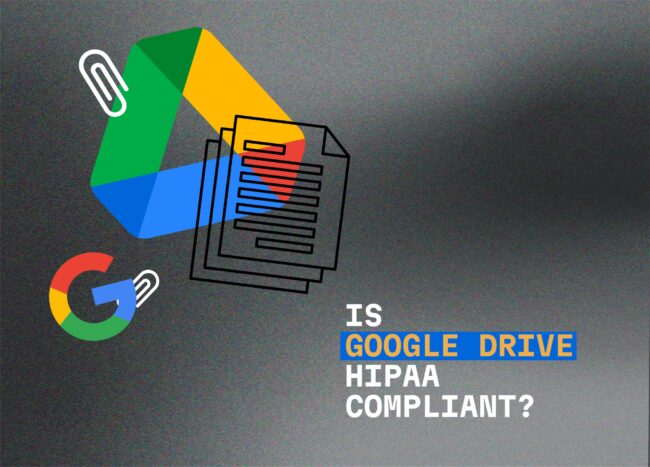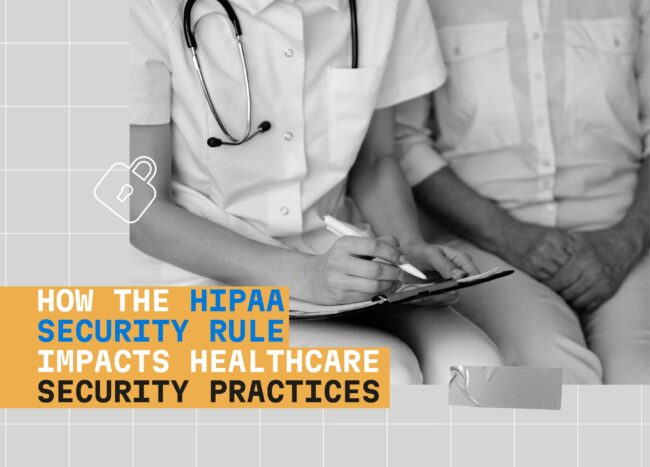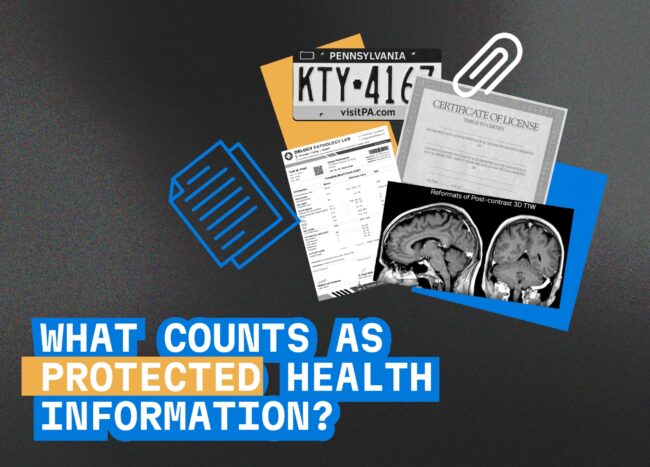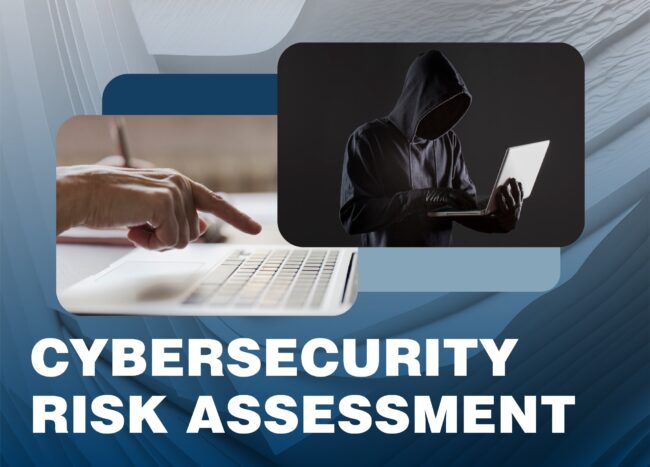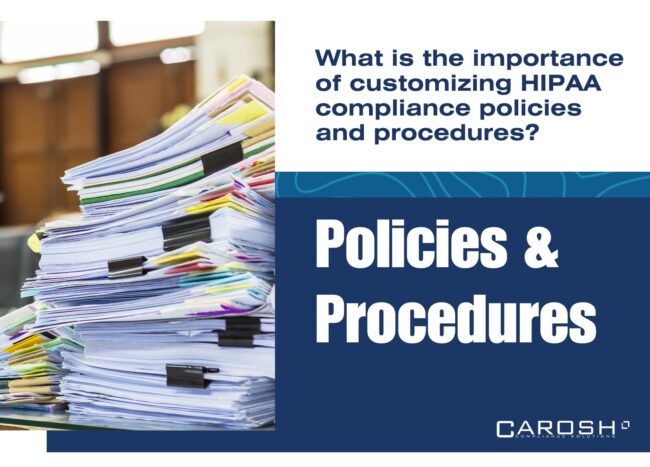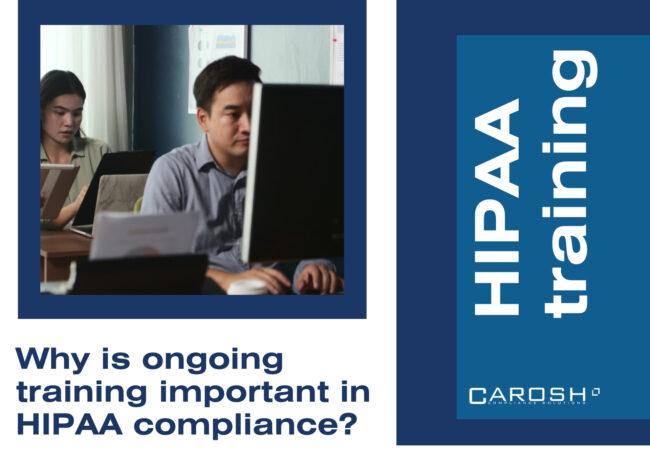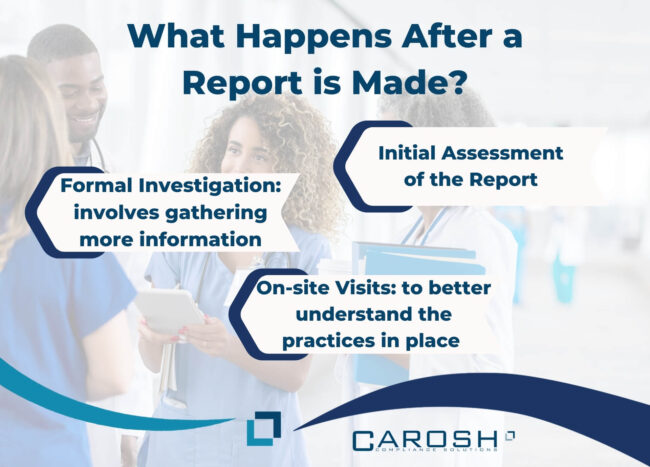Roger Shindell is CEO of Carosh Compliance Solutions. Shindell currently Chair of HIMSS Privacy and Security Committee’s Risk Assessment Work Group and serves as a Council Member of AHIMA’s Privacy and Security Practice Council. He has more than 30 years of multidisciplinary experience and has served as an advisor and principal in healthcare, technology, and service companies.
In the digital era, healthcare organizations are increasingly turning to cloud storage solutions like Google Drive to manage their vast amounts of data. However, when it comes to handling Protected Health Information (PHI), it’s imperative to ensure compliance with the Health Insurance Portability and Accountability Act (HIPAA). This guide delves into the complexities of using Google Drive within the healthcare sector, examining the measures and conditions under which it can be considered HIPAA compliant, and providing insights into securing PHI in the cloud.
In the digital age, the protection of health information has become paramount. The HIPAA Security Rule stands as a framework established to safeguard Electronic Protected Health Information (ePHI) against unauthorized access, use, or disclosure. This comprehensive guide explores the intricate components of the Security Rule, including its purpose, the types of safeguards it mandates, and the essential role of risk analysis in ensuring compliance. By delving into the administrative, physical, and technical safeguards required by the rule, we aim to provide a clear understanding of how healthcare entities can protect sensitive patient data effectively.
In the complex landscape of healthcare information, Protected Health Information (PHI) stands at the heart of privacy and security concerns. Under the Health Insurance Portability and Accountability Act (HIPAA), safeguarding PHI is not just a regulatory requirement, but a measure taken to protect patient privacy and maintain trust in the healthcare system. This article delves into the intricacies of PHI, offering insights into what constitutes PHI, the importance of its protection, and examples that illustrate its scope within the realm of HIPAA compliance.
In the rapidly evolving digital landscape, the security of electronic Protected Health Information (ePHI) has emerged as a paramount concern for healthcare organizations. Adhering to the Health Insurance Portability and Accountability Act (HIPAA) necessitates a robust cybersecurity risk assessment process. This evaluation not only aligns with regulatory requirements but also serves as the cornerstone for safeguarding patient data against the myriads of cyber threats. Through a detailed exploration of the objectives, key components, and procedural steps involved, this guide underscores the importance of cybersecurity risk assessments in maintaining HIPAA compliance and ensuring the integrity of healthcare data.
In the complex world of healthcare information management, following the Health Insurance Portability and Accountability Act (HIPAA) is crucial. Healthcare entities and their business associates must develop and implement policies and procedures that form the basis for protecting Protected Health Information (PHI). This comprehensive guide explores the required policies and procedures for HIPAA compliance, emphasizing their importance in maintaining PHI’s confidentiality, integrity, and availability. It covers the need to tailor policies to an organization’s specific needs, along with the importance of regular staff training and awareness programs, providing insights into establishing an effective PHI management framework.

In the intricate landscape of healthcare data protection, managing third-party risks under the Health Insurance Portability and Accountability Act (HIPAA) is a paramount concern for healthcare entities. Third parties, or business associates, play a crucial role in the healthcare ecosystem, often handling, transmitting, or storing Protected Health Information (PHI) on behalf of covered entities. This comprehensive guide delves into the multifaceted approach required to effectively manage these third-party risks. It covers the identification and assessment of business associates, the critical role of Business Associate Agreements (BAAs), continuous monitoring and management strategies, training and awareness initiatives, incident response planning, and the importance of a comprehensive vendor risk management program. Understanding and implementing these strategies are essential for maintaining HIPAA compliance and protecting patient information in today’s interconnected healthcare environment.
In the complex landscape of healthcare information management, professionals across the sector must understand and adhere to the Health Insurance Portability and Accountability Act (HIPAA). HIPAA certification programs play a crucial role in this educational journey by equipping healthcare workers and compliance officers with the knowledge and tools they need to effectively navigate the intricacies of HIPAA regulations. These programs, which range from general overviews to specialized courses, aim to bolster HIPAA compliance efforts within healthcare organizations. They ensure that staff handle protected health information (PHI) responsibly and securely, covering a broad spectrum of compliance needs.
In the healthcare industry, the protection of patient information is not just a matter of ethical responsibility but also a legal requirement under the Health Insurance Portability and Accountability Act (HIPAA). HIPAA compliance training plays a pivotal role in educating healthcare professionals and staff about the proper handling of Protected Health Information (PHI). This training is critical for ensuring that patient data is treated with the highest level of confidentiality and security.
In the realm of healthcare, the protection of patient health information is paramount, governed by the Health Insurance Portability and Accountability Act (HIPAA). A critical aspect of HIPAA compliance is the process of reporting violations, which is essential for safeguarding patient rights and ensuring the integrity of healthcare data management.
The Health Insurance Portability and Accountability Act (HIPAA) represents a cornerstone in the protection of sensitive patient health information. An essential aspect of HIPAA, which often requires careful navigation, is its application to business associates – entities that handle health information in their dealings with covered entities like healthcare providers and insurers.
